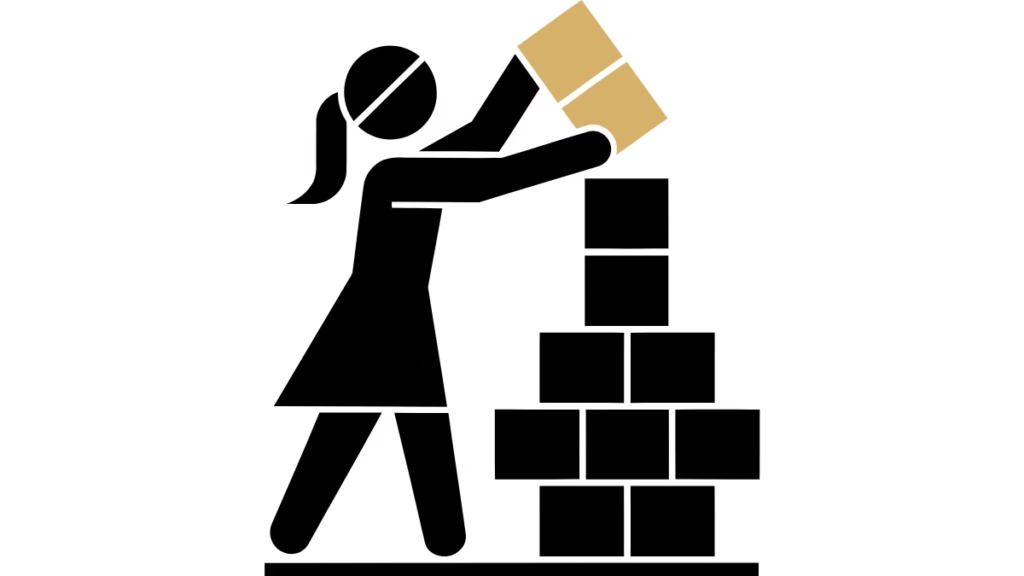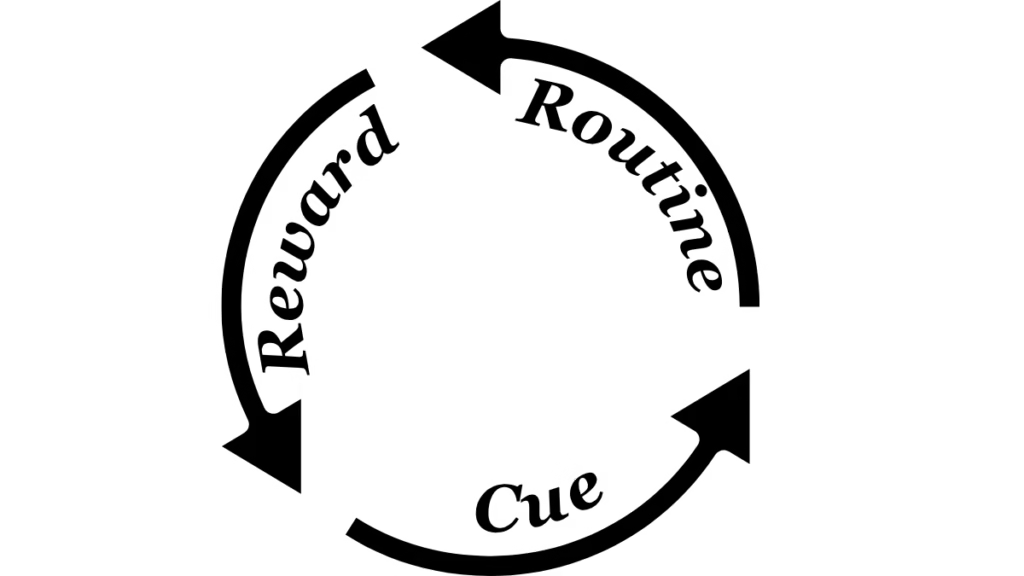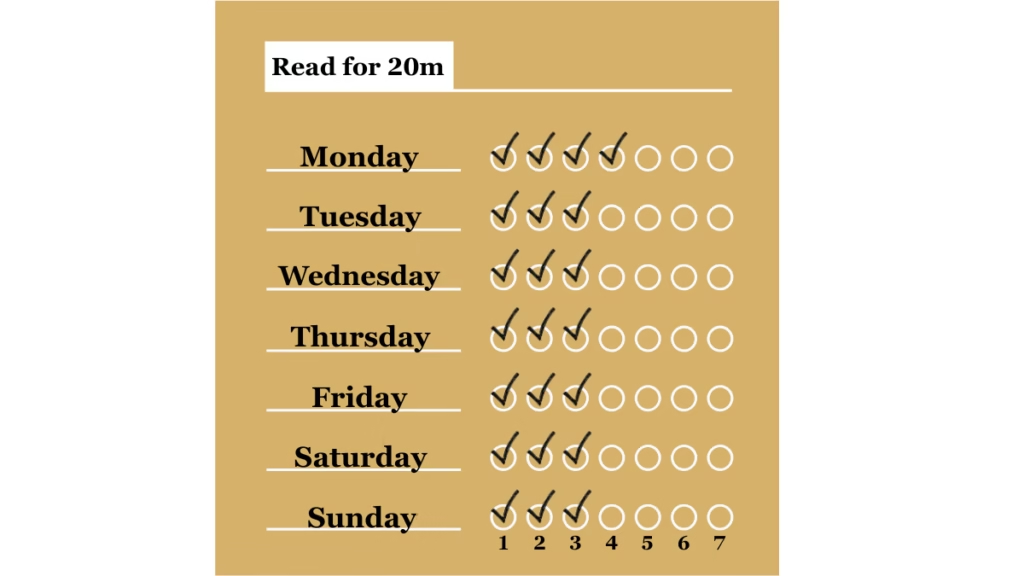How Long Does It Actually Take to Build a New Habit?
How long does it take to build a habit? You’ve likely heard answers—21 days, 30, 66—but habit building isn’t that simple. Depending on what you’re trying to build, and how deeply it aligns with your identity, the habit formation timeline can range anywhere from three weeks to four months. This guide breaks down what actually determines that timeline—backed by behavioral science and designed through the lens of performance. If you’re serious about building habits that last, not just repeat, this is where it starts: with structure, consistency, and intentional design.
How Long Does It Take to Build a Habit?
When most people ask how long it takes to build a habit, they’re looking for a number—21 days, 30 days, maybe 66 if they’ve read the studies. But high performers don’t just follow numbers. They build systems. And systems start with identity.
The truth is this: forming a habit isn’t about crossing a time threshold. It’s about aligning your behavior with who you believe you are—or who you’re becoming.
If you already train at the gym every morning, adding a treadmill run might take a few days. But if you sit at a desk all day and haven’t moved your body in months, that same habit could take weeks, even months.
The real answer? Anywhere from 3 weeks to 4 months—depending on the complexity of the habit, the consistency of your actions, and most importantly, the alignment with your identity.
Why “How Many Days to Build a Habit” Is the Wrong Question
The Myth vs. Reality: 21-Day Rule Debunked (Maltz Origin)
The popular belief that habits form in 21 days comes from Dr. Maxwell Maltz, a plastic surgeon in the 1960s. He observed that it took his patients about three weeks to adjust to their new appearance.
But that observation evolved into a widespread myth: that any habit takes just 21 days. No nuance, no complexity.
And while it’s not entirely false, it’s dangerously simplistic.
Lally’s Study: 18–254 Days, Average 66
In a 2009 study published in the European Journal of Social Psychology, researcher Phillippa Lally and her team tracked 96 participants over 12 weeks.
They found that, on average, it took 66 days for a new behavior to become automatic.
But more importantly: depending on the behavior, the time ranged from 18 to 254 days.
Simple habits like drinking water after breakfast took under a month. More complex ones—like going to the gym—took significantly longer.


Why Everyday Consistency Matters the Most in Building New Habits
What matters more than the number of days is consistency. The Lally study found that missing one day didn’t significantly impact habit formation—but consistency over time did.
Daily repetition accelerates identity change. And identity is what makes the habit stick.
How Long to Build a New Habit? Timeframes by Complexity
Let’s break it down into realistic timelines based on difficulty and identity alignment:
| Habit Type | Example | Avg. Time to Lock In |
|---|---|---|
| Simple | Drink water, stretch | 21–30 days |
| Moderate | Meditation, journaling | 45–60 days |
| Complex | Exercise routine, full morning system | 90–120 days |
Important: If a habit aligns with your existing lifestyle or self-image, it forms faster. If it conflicts with your current identity, expect more friction—and more time.
Why Identity Alignment Accelerates Habit Building
Identity-Based Habits (Atomic Habits’ Core Principle)
In Atomic Habits, James Clear makes a key distinction: lasting habit change isn’t driven by outcomes—it’s shaped by identity. That’s encouraging if you’ve fallen off track. Because if you’ve built the habit once, you’ve already cast votes for becoming that kind of person. The foundation is still there—it just needs reinforcement. If you’re rebuilding, we wrote a focused guide on how to fix broken habits. You can read it here.
Instead of saying “I want to read more,” say “I’m the kind of person who reads every night.” Habits that reinforce this identity become self-sustaining.


Treadmill vs. Couch—Identity Friction Case Study
If you’re already someone who goes to the gym every day, building the habit of running on the treadmill might feel natural.
But if your norm is staying indoors, glued to your desk, starting that same habit will create identity friction—your mind and body resisting change because it feels foreign.
Habit Loops & Neural Pattern Formation
Habits form through a loop: cue, routine, reward. Over time, this loop becomes encoded in the brain’s basal ganglia. The more aligned the behavior is with your identity, the faster this loop embeds itself into your neural pathways.
The Habit Formation Formula: What Actually Determines the Timeline
There’s no fixed number. But there is a pattern:
Identity Alignment + Consistent Cues + Daily Repetition = Automaticity
This is the formula behind high-performance habit building.
Even if you miss a day, Lally’s research shows it doesn’t reset the process—as long as you return with intention. A 2022 meta-analysis across diverse health behaviors confirms and extends on Lally’s findings, highlighting the role of repetition in habit formation timelines.
Think of habit formation like compounding interest. It’s not about perfection. It’s about momentum.


Ways that you can build a habit faster
Understand the Loop You’re Reinforcing
Every habit is built on a loop: cue, routine, reward. This isn’t philosophy—it’s neuroscience. When you repeat a behavior under the same conditions, your brain begins automating it. That’s the power of the loop. So when you stack habits or adjust your environment, you’re not just doing more—you’re reinforcing a neural circuit. The stronger the loop, the faster the habit locks in.
Build with Patience, Not Pressure
Habit building is quiet work. Most people quit because they lack discipline and patience. We wrote an article about how you can build the ideal mindset to avoid that outcome, which you can read here. In all honesty you won’t feel the habit changing after a week. Sometimes not even after a month. But beneath the surface, systems are forming. Behavior becomes identity when it’s repeated with intention—not rushed out of urgency. Trust the compound effect. Perform, consistently.
Habit Stacking & Environment Design (James Clear & Duhigg)
Pair your new habit with an existing one: “After I brush my teeth, I’ll meditate for 2 minutes.” This leverages an existing neural pattern.
Design your environment to reduce friction. Want to journal every morning? Leave your notebook on the desk. Make the right action easy.
Performance Identity: Define Who You Want to Be
Before the habit, comes the person. Write down: What kind of person achieves the outcomes I want? Then align your actions with that vision.
Thovia calls this your performance identity—the version of you that acts with precision, discipline, and clarity.
System Over Goals: Embed Daily Repetition
Goals are outcomes. Systems are what make outcomes inevitable.
Don’t aim to “read 20 books this year.” Build a system: 20 minutes of reading each night after dinner.
Daily reps > sporadic effort.


Tracking Your Progress
Keeping a journal or using habit-tracking apps can help maintain motivation. When building habits you’ll often run into self sabotage. Through mindfulness and tracking you can help eliminate those tendencies.
So how Long Does It Take to Build a Habit?
Here’s how long it typically takes to build a habit—based on simplicity and alignment:
| Days | Habit Type | Identity Alignment |
|---|---|---|
| 21 | Simple, well-aligned | High |
| 45 | Moderate effort | Moderate |
| 90+ | Complex or misaligned | Low |
The stronger the alignment, the less resistance. The more friction, the more reps required.
Final Thought
Don’t chase a number. Build an identity.
At Thovia, we believe habit formation is less about counting days and more about crafting systems, aligning with identity, and making your path frictionless.
Habits don’t stick because time passed. They stick because they make sense for who you are—and who you’re becoming.
Build with intention. Perform with clarity.
Common Questions
u003cstrongu003eCan I build a habit in 21 days?u003c/strongu003e
If it’s simple and aligned with who you are, yes. But don’t count days—count repetitions.
u003cstrongu003eWhat if I miss a day?u003c/strongu003e
Lally’s study shows missing one day doesn’t hurt long-term progress. What matters is returning without delay.
u003cstrongu003eDo habits form faster if they align with my identity?u003c/strongu003e
Yes. When a habit fits your self-image—like adding meditation to an already disciplined fitness routine—it creates less resistance and builds faster.





